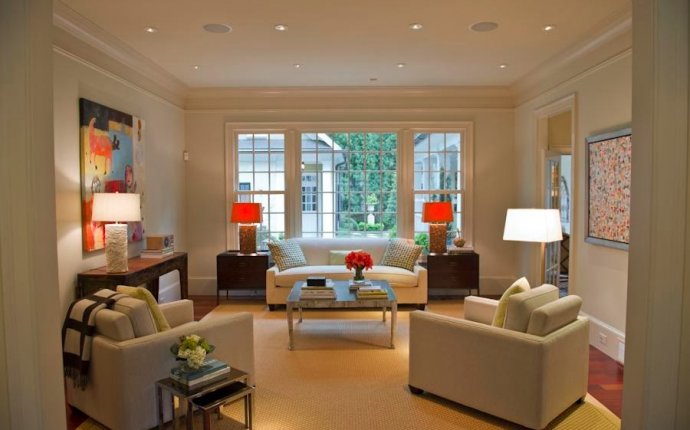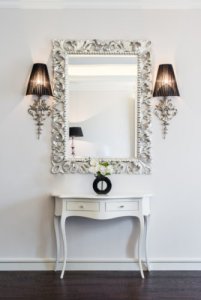
Feng Shui mirror Placement in living room
It’s important to use them properly, though, or you may end up with exactly the opposite result from what you intend.
Here are a few Feng Shui mirror pointers to get you started:

Feng Shui Mirror “Do’s”
- Do use “whole” mirrors in which you can see yourself in one piece. This gives you a sense of completeness whenever you see yourself. Tiny or tiled mirrors or fragments will cause you to feel “broken up” into pieces over time.
- hang mirrors to bring in beautiful views of nature from the outdoors, amplifying them and activating Mother Nature’s healthy Chi energy indoors.
- use mirrors where they’ll add light and movement to your space. A large mirror in a long dark hallway, for instance, will draw Chi energy down the hall, helping it circulate throughout your home.
- hang a mirror near your entryway, both to activate the Water element there as well as to give you a positive glimpse of yourself on your way out the door.
- place a mirror against the wall that defines a missing Bagua area, to visually expand the space and symbolically fill in the missing area.
Feng Shui Mirror Don’ts
- Don’t hang mirrors in your bedroom! This is such a big topic that I’ve written separate articles about it. Start reading here about Mirrors in a Feng Shui Bedroom.
- hang a mirror so it reflects you within 5 feet of entering your home. This will cause your Chi energy to bounce right back out the door.
- hang mirrors with distorted or antiqued surfaces. Over time as you see yourself in them, you will come to feel distorted or prematurely aged yourself — and that’s never good!
- hang a mirror too high or too low. It must be at a height where you can perfectly see the yourself and your aura: at least your entire head and shoulders, and those of anyone with whom you share your home.
Source: openspacesfengshui.com









